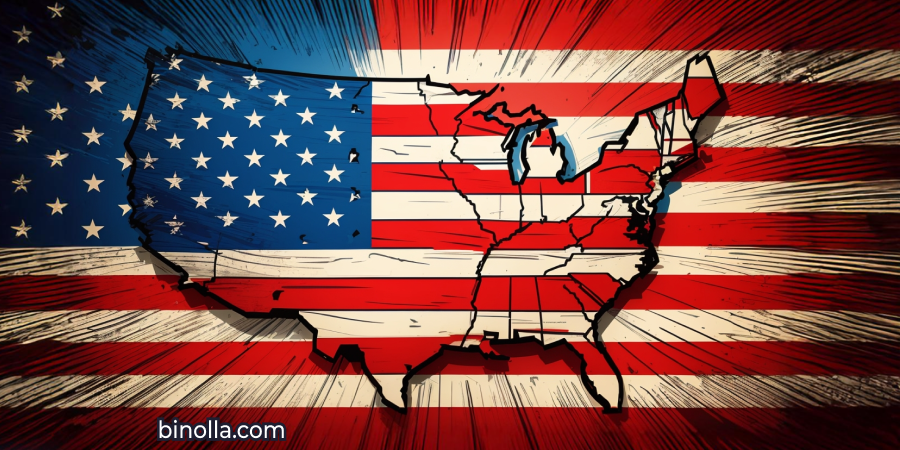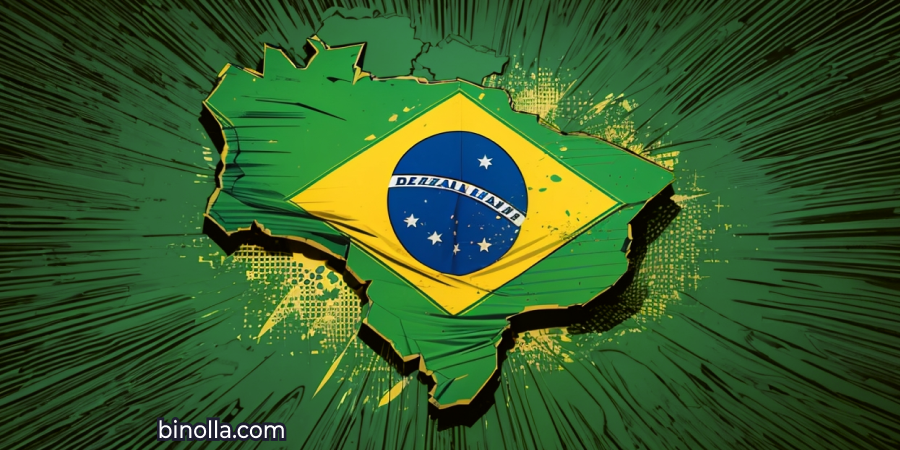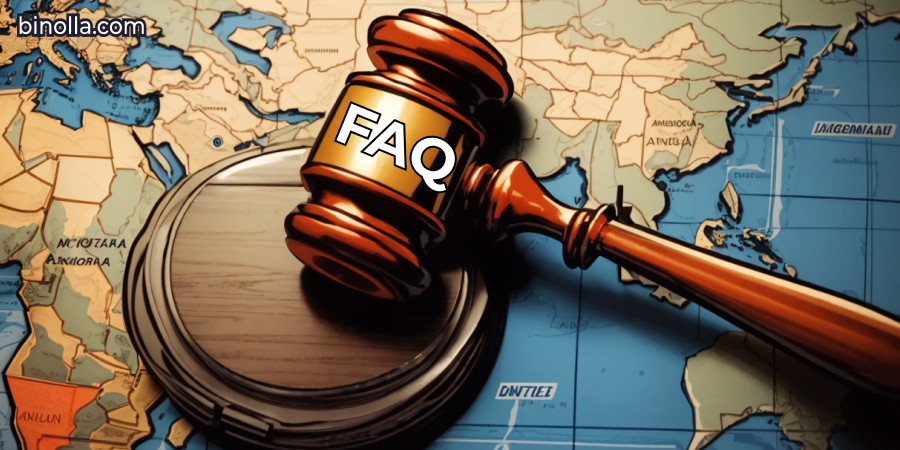Digital Options Trading: Legal Status and Regulations by Country

Digital options are very popular among traders because they offer high returns in a short period of time. These financial instruments have become a kind of gateway to the world of trading. However, many traders across the world who join this industry want to know whether digital options are legal. By reading this article, you will learn more about the legal status of these contracts. Moreover, we are going to provide you with details about the regulations of digital countries in various countries.
Contents
- 1 History of Digital Options
- 2 Are Digital Options Legal in General?
- 3 Digital Options in the United States
- 4 Digital Options In Europe
- 5 Try trading digital options with Binolla!
- 6 Digital Options in Brazil Legal Status
- 7 Digital Options and Their Legal Status in Argentina
- 8 Trading Digital Options in Mexico: Legal Status
- 9 Digital Options Legality in Other Latin American Countries
- 10 Digital Options Regulation in India
- 11 How Digital Options Are Regulated in Bangladesh
- 12 Digital Options in Pakistan
- 13 South Korea
- 14 Trading Digital Options in the Middle East
- 15 Are Digital Options Legal in Africa?
- 16 Why Do Traders Choose Digital Options?
- 17 Conclusion
- 18 FAQ
History of Digital Options
The first digital options appeared in 2008 in the United States where they were introduced by the Chicago Board Options Exchange. That year a severe financial and economic crisis hit the United States and then the whole world making ordinary people search for additional sources of income.
With the appearance of a new financial instrument called binary options (the name “binary” refers to the nature of this contract as trading it may have only two possible results), a lot of people receive access to the world of financial markets even if they didn’t have any previous financial or economic background.
While becoming a new era in trading, digital options were not totally new financial instruments. Classic options have been known in the world since 1973 when CBOE was opened. In 2008, the US Securities and Exchange Commission, known as SEC accepted these new contracts and they were first launched in Chicago. The American Stock Exchange (AMEX) started offering binary options to the public for the first time.
With the development of technologies, digital options became widely popular as these contracts stepped outside the American ground and spread all over the world. By the 2010s, there were plenty of brokerage firms offering these contracts to wide masses. However, similar to other financial market niches like Forex or stock trading, not all companies were legitimate, and 100% transparent. Some brokers were using fraudulent schemes to deceive their clients.
This resulted in differences in legislation and regulation of such contracts in various regions. While some countries allow digital options nowadays, they are not accepted in others. By reading further, you will see how digital options are regulated in various regions presently. However, first, let’s see whether they are legal in general in the world.
Are Digital Options Legal in General?
The answer is Yes. To be more clear, it is worth mentioning that all the most reputable financial regulatory authorities in the world provide licenses for digital options trading. Digital options are recognized in various countries. Moreover, they are widely traded by both novice and skilled traders and investors. Here is the table with famous regulatory authorities authorizing digital options trading in various countries/regions or globally.
| Financial Regulator | Country |
| CFTC (Commodity Futures Trading Commission) | United States |
| SEC (Securities and Exchange Commission) | United States |
| CySEC (Cyprus Security Exchange Commission) | Cyprus + all countries of the European Union |
| ASIC (Australian Securities and Investments Commission) | Australia |
| Financial Markets Authority | New Zealand |
| MFSA (Malta Financial Services Authority) | Malta + international licenses |
| FSA (Financial Services Authority) | Japan |
| FSC (Financial Services Commission) | South Korea |
As you can see from this table, all major financial regulators allow traders to use digital options in trading. Therefore, these contracts are totally legal across the world. There are no restrictions for traders to use them as these financial instruments are recognized by the most notable regulatory authorities. However, there are some aspects that you should learn. By reading this article further, you will see how digital options are regulated in various countries.
Digital Options in the United States

Digital options trading in the United States began in 2008 when the Securities and Exchange Commission approved this type of financial contract. Trading was launched on the NYSE American (MYSEA) and the Chicago Board Options Exchange (CBOE) the same year. The first offers digital options on some exchange-traded funds (ETFs) and several liquid equities. CBOE offers only two underlying assets – the S&P500 and the CBOE Volatility Index.
There is a special US-based digital options exchange, known as NADEX, which is located in the United States and provides local traders with access to digital options. It is regulated by the CFTC and offers contracts for a range of FX instruments, commodities, and stock indices.
As you can see, digital options are widely spread in the United States. However, all these exchanges and brokers offer service to US residents only. No one from outside the United States can join them. Therefore, traders worldwide should look for alternatives if they want to start trading digital options. Now, let’s check the legal status of digital options in various countries to see whether they are legal or not in some other regions.
Digital Options In Europe
When it comes to Europe, digital options are prohibited in most EU countries due to the fact that there have been plenty of doubts about these contracts. The last country that restricted these contracts was the United Kingdom. Most financial regulators from Europe revise this restriction from time to time but still, the progress is very low.
These contracts were prohibited in the region by both the European Securities and Markets Authority (ESMA) and local regulators. However, digital options restrictions are not related to professional market participants. ESMA considers such a financial instrument very risky and warns retail investors about the consequences of using it.
While European regulatory authorities do not allow companies to provide digital options at the moment, these restrictions are under constant revision and Europe may give a green light to digital options in the future. Unlike the United States, where digital options are legal and provided by regulated exchanges, European laws in this niche are still outdated.
Digital Options in Brazil Legal Status

Digital options attract a lot of attention from Brazilian traders and they are currently among the most popular financial instruments in the country. Therefore, it is worth knowing that these contracts are legal in Brazil. While there are no local brokerage companies, traders can start trading with international brokers.
All trading and financial activities in Brazil are regulated by CVM (Comissão de Valores Mobiliários). This organization closely monitors all activities related to digital options and other financial instruments especially those offered by overseas brokerage companies. It should be mentioned that CVM does not issue licenses to companies that are located outside the country. The main mandate of the regulatory authority in this case is to protect local traders.
In general, digital options are not prohibited in Brazil. The local regulator does not issue licenses and there are no local companies at all, but traders from this country are not restricted to search for international brokerage companies operating worldwide.
Digital Options and Their Legal Status in Argentina
The next Latin American country where digital options are extremely popular is Argentina. All financial activities there are regulated directly by the local central bank (BCRA). The organization allows local traders to participate in digital options trading without any restrictions. Similar to Brazil, there are no local brokerage companies offering digital options to traders. Therefore, those who want to buy such contracts should check for international companies offering these services.
BCRA closely monitors all trading activities and is ready to provide support to traders in case of disputes with brokers. With the rising interest in digital options trading in the country, the appearance of local companies providing trading services is real. However, currently, the only way for traders to participate in these activities is to join companies that work worldwide.
Trading Digital Options in Mexico: Legal Status
Digital options are legal in Brazil and Argentina. Mexico is not an exception. These contracts are widely popular in this country as they allow market participants of all types to gain on price fluctuations and generate serious income.
When it comes to legal status, similar to many other Latin American countries, Mexico does not have any specific regulations related to digital options. Traders can buy digital options without any restrictions. While there are still no local brokerage companies accepting traders from Mexico, they join international brands to buy digital options in various assets.
When it comes to local regulatory authorities, all financial activities related to securities are supervised by the National Banking and Securities Commission (Comisión Nacional Bancaria y de Valores, CNBV). This organization monitors all brokers’ activities in the country providing local traders with the necessary support.
Digital Options Legality in Other Latin American Countries
We have described digital options legality in three random countries belonging to the Latin American region. However, the range of countries where you can trade these contracts is broader. Here is a table where you can find countries where digital contracts are legal.
| Country | Regulatory Authority |
| Columbia | Superintendencia Financiera de Colombia (SFC) |
| Costa Rica | The Superintendencia General de Entidades Financieras (SUGEF) |
| Cuba | Central Bank of Cuba |
| Dominican Republic | The Financial Services Unit (FSU) of the Commonwealth of Dominica |
| Ecuador | Central Bank of Ecuador (BCE) |
| El Salvador | The Superintendence of the Financial System (SFS) |
| Guatemala | Banking Superintendence (Superintendencia de Bancos, SIB) |
| Honduras | CNBS (Comisión Nacional de Bancos y Seguros de Honduras) |
| Nicaragua | Superintendent of Banks and Other Financial Institutions (SIBOIF) |
| Panama | Superintendency of Banks of Panama, also known as Superintendency de Bancos Panama (SBP) |
| Paraguay | Central Bank of Paraguay |
| Peru | Superintendencia de Banca, Seguros y Administradoras Privadas de Fondos de Pensiones (SBS) |
| Puerto Rico | Office of the Commissioner of Financial Institutions |
| Uruguay | Central Bank of Uruguay |
| Venezuela | Central Bank of Venezuela |
Digital Options Regulation in India

Being one of the biggest countries in Asia in terms of population, India is among the most “trading” countries in the world. Digital options are very popular among traders from India for allowing locals to start with smaller amounts (the minimum deposit in most brokerage firms is no more than $10).
The Reserve Bank of India together with the Securities and Exchange Board of India (SEBI) prohibits Forex and digital options trading. However, this is related only to companies that are registered in the mainland. When it comes to traders themselves, they are not limited nor restricted from participating in such trading activities.
To make it clear, local companies in India are not allowed to provide traders with FX and digital options services, while traders can freely join international overseas companies that offer such activities without any limitations. Therefore, hundreds of thousands of local traders work with companies that are located abroad to have access to their favorite financial instruments.
How Digital Options Are Regulated in Bangladesh
Now let’s move to Bangladesh, the next major country in the region where there are a lot of traders who prefer Forex and digital options. It is worth mentioning that neither the local government nor the Bangladesh Securities and Exchange Commission (BSEC) have issued any laws regulating this niche. Therefore, such financial contracts are not regulated at all.
While there are no local brokers providing services to Bangladeshi traders, the latter can choose from a variety of international companies that allow them to trade Forex or digital options. The government does not impose any restrictions on such activities of the residents of the country allowing them to choose where to trade on their own.
Digital Options in Pakistan
Similar to Bangladesh, Pakistan is open to various types of trading as the State Bank of Pakistan makes no restrictions for this niche. There are no companies in Pakistan providing such services. In order to trade digital options in Pakistan, traders should go to online overseas brokerage companies.
South Korea
The first thing that one should know about digital options trading in South Korea is that it is totally legal. If a brokerage company wants to operate in the local market, it should receive a license from the Financial Services Commission (FSC).
This regulatory authority monitors the situation in the market and sometimes acts as an intermediate helping traders in disputes. Moreover, local traders can choose various brokers even those coming from other countries with international licenses to operate with them. The trading industry in this country is booming due to higher demand. While there are no local companies that provide digital options trading, many market participants prefer to choose international brokers.
Trading Digital Options in the Middle East
Trading has become very popular recently in this region with a lot of brokers providing their services to local traders. Most countries there do not have strict rules about how companies can operate, but this opens a lot of opportunities to market participants as they can choose companies that come from abroad. Let’s see whether it is legal to trade digital options in some major countries in the region.
Traders from the UAE can legally buy digital options contracts as the local regulatory authority does not restrict such activities. The Emirates Securities and Commodities Authority (ESCA) is responsible for issuing licenses to digital options and Forex brokers and monitors closely this market. Similar to many countries that were already described, there are no local brokers in Dubai, which means that the only way for locals to participate in digital options activities is to join international companies.
Such countries as Qatar or Saudi Arabia have no legislation in this niche at all, which means that traders are free to make their own choices. Those who want to buy digital options are only required to choose an international platform, join it, and start trading.
Are Digital Options Legal in Africa?

In general, digital options are legal in all countries of the region, which means that traders can start trading these contracts right away without any restrictions. The thing is that in some countries such financial instruments are regulated, while in other ones now laws still exist. In both cases, you can be sure that you do not break any law by buying such contracts.
The Financial Sector Conduct Authority of South Africa regulates all the activities related to trading, including digital options brokers. Companies that operate in the local market should receive a license from this organization. Alternatively, local traders can join brokerage firms with international licenses.
A similar situation is in Nigeria, where the local Securities and Exchange Commission is responsible for monitoring and licensing digital options trading. While no companies are present in the country, local traders use international companies to buy digital options. Now that you know more about digital options regulations in various regions, let’s see the reason behind their breathtaking popularity.
Why Do Traders Choose Digital Options?
The interest in digital options rises from year to year due to many factors. These contracts offer a lot of benefits for both new traders and those who have already had some experience. Let’s see some of the key advantages of trading this financial instrument:
- Time limitation. Digital options have an expiration feature that limits every trade in time. This allows you not to think about when to close a trade as it will be closed automatically;
- Higher payouts for shorter periods. When trading digital options, you can gain significant profits (up to 90% and higher) even for a minute;
- No margin is required. You trade only on your own money and can lose only what you can afford to lose;
- No spreads or hidden commissions. Traders do not pay anything for contracts they buy;
- No need to calculate the risk-reward ratio as you know in advance how much you can gain or lose in your next trade;
- Easy to trade and understand. Digital options have only two outcomes. This makes them very easy to understand and trade.
Conclusion
As you can see, digital options are widely accepted in the world and known from the United States to Asia and Africa. A lot of countries regulate these contracts while even more still work on legislation to create a legal framework for those who want to participate in trading. In any case, these contracts are legal across the world. The situation with Europe is still unclear as currently digital options are not allowed in most countries of the continent. However, local regulators review the restrictions and at some moment, new legislation may appear and these contracts may be allowed even in the European Union.
FAQ

Are Digital Options Illegal?
No, they aren’t Digital options are legal in most countries of the world, including the United States.
Is It Safe to Invest in Digital Options?
Yes, it is. Trading digital options is safe. However, you shouldn’t forget about the risks of losing money when making wrong trading decisions.
Are Digital Options Easier than Forex?
Yes, they are easier than Forex as you don’t need to protect your positions from risk or plan your risk-reward ratio. In digital options, the only thing that matters is the direction that you choose for trading.







